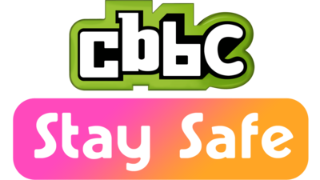E-safety
For further information about Safer Internet Day, please go to their website, www.saferinternet.org where you will find films, storybooks and other fun sites, with plenty of information to help your child enjoy their time online and stay safe on the internet. There are some great resources for 3-11s available to help children and young people find out how much they know about sharing images online.
SMART RULES
- S - Safe: Keep safe by being careful not to give out personal information when you're chatting or posting online. Personal information includes your email address, phone number and password.
- M - Meet: Meeting someone you have only been in touch with online can be dangerous. Only do so with your parents' or carers' permission and, even then, only when they can be present. Remember, online friends are still strangers even if you have been talking to them for a long time.
- A - Accepting: Accepting emails, messages, or opening files, images or texts from people you don't know or trust can lead to problems — they may contain viruses or nasty messages!
- R - Reliable: Someone online might lie about who they are and information on the internet may not be true. Always check information by
- T - Tell: Tell a parent, carer or a trusted adult if someone, or something, makes you feel uncomfortable or worried, or if you or someone you know is being bullied online.
What can parents/carers do? Follow the Golden Rules
Ground Rules
Discuss as a family how the internet will be used in your house. Consider what information should be kept private (such as personal information, photos etc) and decide rules for making and meeting friends online. Make sure you know what your child is doing online much like you would offline.
Discuss using strong passwords with your child so they understand how they can protect their online accounts. It’s important they know they need to keep their passwords safe and not share them with anyone or use the same password for several accounts. If your child’s account is “hacked” or compromised, then make sure they change their password and report any concerns or suspicious activity. Check how secure your passwords are here: http://howsecureismypassword.net/. For more advice on using strong passwords, visit http://tinyurl.com/Getsafeonlinepassword
Online Safety
Install antivirus software, secure your internet connection and use Parental Control functions for computers, mobile phones and games consoles to block unsuitable content or contact. Always remember that parental control tools are not always 100% effective and sometimes unsuitable content can get past them, so don’t rely on them alone to protect your child.
Vodafone Digital Parenting Magazine and website is created for parents and schoolteachers to help them give children the life skills they need to thrive in the always-connected digital world. Please have a look at the expert advice they offer. We hope it will give you essential knowledge and help build your confidence as you guide your children through the challenges of life online.
There’s information and advice from experts, parents and teachers on a range of topics, including how to:
- Teach your child digital resilience
- Navigating the pitfalls of social media
- Coping with online peer pressure
- Managing your family’s screen time
- Protecting your family from cyber crime
- Use parental controls and settings to stay safe
Location
Consider locating your computers and laptops in a family area where children’s online activity can be monitored or supervised. Always supervise the use of webcams and any applications or devices which allow voice or video chat. Also consider the use and location of other devices your child uses which allow internet access, such as mobile phones and games consoles. Visit www.saferinternet.org.uk/advice-and-resources/a-parents-guide for safety information about consoles and devices.
Dialogue
Talk to your child and ask them to show or even teach you how they use the internet, learn which websites or tools they like to use and why. Learning together with your child can often open opportunities to discuss safe behaviour online.
Always ensure your child knows how to block and report people online who may send nasty or inappropriate messages or content. Encourage your child not to retaliate or reply and to keep any evidence.
Make sure your child knows it’s important that they tell an adult they trust if anything happens online that makes them feel scared, worried or uncomfortable.
It’s essential to be realistic: banning the internet or websites often will not work, and it can make a child feel less able to report a problem or concern, so education around safe use is essential.
You can view or print out the e-Safety policy by clicking on the link below.
Websites to visit for more information:
www.thinkuknow.co.uk – Visit the “Parent/Carer” Section and use the “Click CEOP” button to seek advice and report online abuse
www.childnet.com – Visit the ‘Know It All’ Section for an interactive guide about online safety
ww.getsafeonline.org – Free up-to-date security advice including using complex passwords and managing hacked accounts
https://www.kent.police.uk/advice/online-safety/ - Guidance from Kent Police
www.kent.gov.uk/esafety - Guidance from Kent County Council
At Davington, our e-Safety Coordinator is Mrs Davison, our Designated Child Protection Coordinators are Mr Saint and Mrs Davison, who are available to discuss any help you may need or concerns that you may have.
If you are worried that your child is at risk of harm or a criminal offence has been committed, then you can report your concerns using one of the following contacts.
Children’s Social Care: 08458 247247
Kent Police: 101
CEOP: Visit www.ceop.police.uk and use the “Click CEOP” reporting button
/0211ADB517F02A8131E6A94CA35673FD.jpg)





